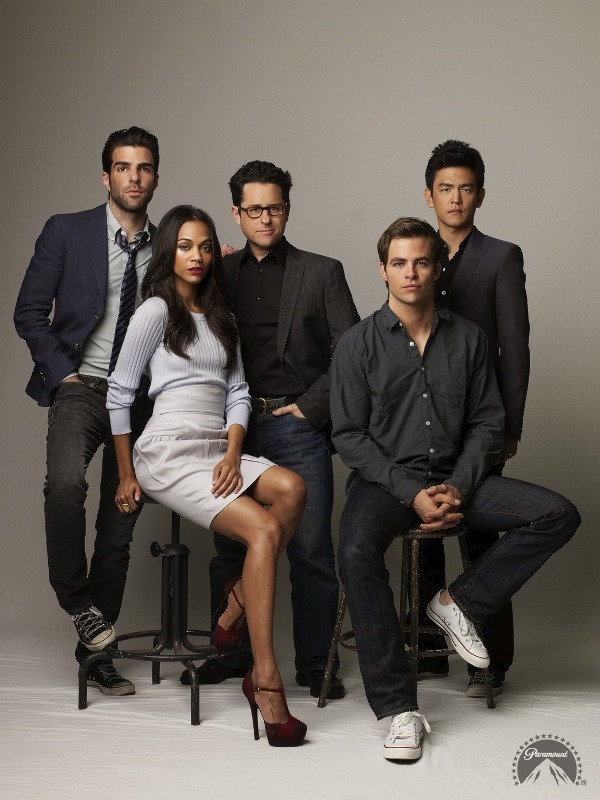Star Trek (2009) is a cinematic masterpiece that reinvigorated the beloved franchise for a new generation. Directed by J.J. Abrams, this film boldly reimagined the classic Star Trek universe while staying true to its roots. Set in an alternate timeline known as the Kelvin Timeline, the movie introduced audiences to a younger version of the iconic crew from the original series. With stunning visuals, compelling storytelling, and a fresh take on familiar characters, Star Trek (2009) became a cultural phenomenon that captivated fans worldwide.
The cast of Star Trek (2009) brought these legendary characters to life with remarkable performances that honored their predecessors while carving out their own unique identities. From Chris Pine's charismatic portrayal of Captain James T. Kirk to Zachary Quinto's nuanced depiction of Spock, each actor contributed significantly to the film's success. Their chemistry and dedication created a stellar ensemble that resonated deeply with both longtime fans and newcomers alike, proving why this reboot remains one of the most celebrated entries in the franchise.
A New Era Begins: The Stellar Ensemble
The Star Trek (2009) cast represents a groundbreaking chapter in the history of the franchise. Featuring talented actors such as Chris Pine, Zachary Quinto, Leonard Nimoy, Eric Bana, Bruce Greenwood, Karl Urban, Zoe Saldana, Simon Pegg, John Cho, Anton Yelchin, and more, this ensemble breathed new life into the timeless story of exploration and adventure. Each performer brought depth and authenticity to their roles, creating memorable portrayals that captured the essence of their characters.
Chris Pine’s interpretation of Captain James T. Kirk showcases the character's rebellious spirit and leadership qualities, making him relatable to modern audiences. Meanwhile, Zachary Quinto delivers a powerful performance as Spock, skillfully balancing the character's logical Vulcan side with his emotional human half. Leonard Nimoy's return as Spock Prime adds layers of complexity to the narrative, bridging the gap between the original series and the rebooted timeline.
Supporting characters like Uhura (Zoe Saldana), Scotty (Simon Pegg), Sulu (John Cho), Chekov (Anton Yelchin), and Bones (Karl Urban) further enrich the story, offering diverse perspectives and enhancing the dynamic relationships within the crew. Together, they form a cohesive unit that embodies the core values of unity, courage, and discovery central to the Star Trek ethos.
Beyond the Screen: Interviews and Insights
Behind-the-scenes interviews with the Star Trek (2009) cast and crew provide fascinating insights into the creative process behind the film. These conversations reveal how the actors prepared for their roles, collaborated with director J.J. Abrams, and worked together to bring the vision of the Kelvin Timeline to life. Fans can explore these discussions on platforms like YouTube, where video clips offer glimpses into the passion and dedication driving the project.
For instance, Chris Pine discusses his approach to playing a younger, brasher version of Kirk while paying homage to William Shatner's iconic portrayal. Similarly, Zachary Quinto shares his thoughts on embodying Spock's dual heritage and the challenges of portraying such a complex character. Leonard Nimoy reflects on passing the torch to Quinto and contributing to the film as Spock Prime, adding weight and significance to the storyline.
These interviews not only highlight the individual contributions of the cast members but also underscore the collaborative effort required to create a successful blockbuster. By sharing their experiences and inspirations, the actors deepen our appreciation for the film and its impact on the Star Trek legacy.
Legacy and Continuity: Bridging Generations
One of the most intriguing aspects of Star Trek (2009) lies in its ability to connect past and present iterations of the franchise through clever storytelling devices. Leonard Nimoy's appearance as Spock Prime serves as a pivotal element in achieving this balance, allowing the filmmakers to acknowledge the original series while establishing the foundation for future adventures in the Kelvin Timeline. His presence creates continuity between eras, ensuring that the essence of Star Trek endures across generations.
This blending of old and new extends beyond just casting decisions; it permeates every aspect of the production, from visual design to thematic elements. For example, the inclusion of references to previous films and episodes appeals to long-time enthusiasts without alienating newcomers unfamiliar with the lore. Additionally, the choice to feature established actors alongside rising stars fosters a sense of nostalgia while introducing fresh faces who will carry the torch forward.
As discussions about potential sequels continue, many cast members have expressed interest in returning to the roles that defined their careers. Whether or not these projects come to fruition, the impact of Star Trek (2009) on popular culture remains undeniable, cementing its place as a cornerstone of science fiction cinema and inspiring countless fans around the globe.

